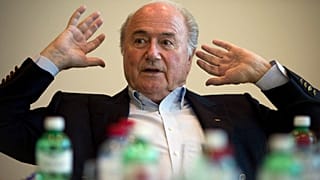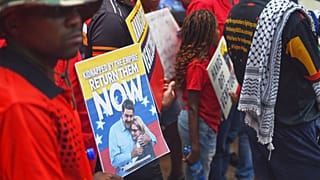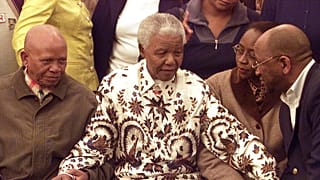South Africa
This is the first hill climb race in Cape Town since the event was discontinued in the 1960s.
Hill climb events are timed runs up a hill in sports cars spanning many decades.
This Speed Classic event takes place on Philip Kgosana Drive, usually a public road leading into the city.
Day one means classic cars—vehicles older than 2001.
This 1970 B19 Chevron is one of only 35 built, and was once owned by racing driver Stirling Moss.
Today, Franco Scribante keeps the spirit of this 55-year-old legend alive.
"We like the hill climb events because it's a bit different from your standard racing, you can't choke, you've got one shot at it. And there's no room for mistakes, no matter how hard the pressure is on you," says Scribante.
On classic car day one, vehicles reached speeds of up to 220 kilometres per hour on the 1.8-kilometre hill climb.
Scribante completed the route in 40.362 seconds, placing him second among the classic cars.
The oldest vehicle participating in the Speed Classic event is a 1930 Le Mans Bentley, driven by Harry Tayler.
It's a race car with a 4,500 cc four-cylinder engine and looks so good it could be in a museum.
As far as Tayler's concerned, age is not a factor when it comes to this vehicle's purpose in life.
"People say it's old and it's rare and it's valuable, should you be driving it like this?" says Tayler.
"Should it not belong in a museum or in a collection or whatever? To my mind, it was made to be driven. It was made to be raced. So keep on racing!"
This model Bentley was a Le Mans winner in 1928, and has a top speed of 127 miles per hour.
Not much by today's standards, but back in the 1920s, this car was at the cutting edge.
The Bentley keeps alive the spirit of the original hill climbs, which proliferated in Cape Town during the inter-war economic downturn.
Michele Lupini is a motoring journalist who has just written a book on the history of motorsport in South Africa.
"Hill climbing worked in difficult economic times: post-World War I, post-World War II. And also in the very beginning. Because there was no infrastructure, there was very little money to race. And it was easy, cheap to race. You didn't have to spend a huge amount of money preparing a car. You'd arrive at a hill, run up the hill, and be able to take a trophy home if you're lucky, good enough, in the afternoon," says Lupini.
The reintroduction of a hill climb event in Cape Town is indicative of the enduring popularity of this motorsport niche.
Event director Garth Mackintosh is among the people responsible for bringing this classic event back.
"It's a lot more exciting in my opinion than a lot of the traditional racing. Very short, sharp, punchy, and extremely visceral and exciting on the start line all the way up the track. It's something you have to come and feel, and hear and see to really understand what it's about," he says.
Day two is open to modern vehicles, and Ferrari competitor Nivan Maistry says he wants to inspire more people to get involved in motorsport.
He explains: "I want people to know the car, get closer to the car, people to have the feeling and to want to work towards getting a car like this. I wasn't born with a silver spoon in my mouth. I worked all this time. My Dad used to race in the 60'60s and 70'70s, and that's where my passion came from—a normal person. I own a workshop, Ianda Panel Beating Shop. And I'm here. Anybody can do it."
Maserati's 2017 fafactory-specerrari 488 GTB produces about 700 horsepower from a turbocharged V8 engine.
This Ferrari is one of over 150 participating vehicles at the inaugural Cape Classic hill climb event.
One of the modified vehicles is Dawie JJoubert's Lotus—with an Italian twist.
"We call it the Lotari because it's a Lotus with a Ferrari engine, and it's a suite, strong with a good power-to-weight ratio, so we enjoy. It's quite a beast. You need to treat her with respect," he says.
The Lotus pushes 850 horsepower and, combined with the superb handling of the Lotus frame, makes a thrilling race car on the short track.
Among the modified race cars are 1,200-horsepower beasts capable of reaching 240 kilometres per hour.
Franco Scribante won the King of the Hill title in a modified Nissan GTR R35 with a time of 35.26 seconds up the 11.8-kilometer course. He takes the top step of the podium to collect his trophy.
Organisers hope this will become an annual event in the city.












02:13
Families bid farewell to schoolchildren in South Africa killed in a school bus crash
00:29
South Africa's Kruger park suffers 'devastating' damage from floods
01:21
13 schoolchildren killed in tragic road crash south of Johannesburg
00:54
Floodings kill at least 10 in South Africa, triggering the closure of Kruger Park
Go to video
US House passes 3-year AGOA extension but South Africa's inclusion is unclear
01:32
South Africa's ANC party launches reform plan to win back votes in local polls